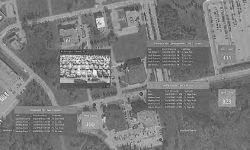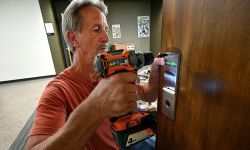MSU shooting, one year later: What science says about trauma and healing
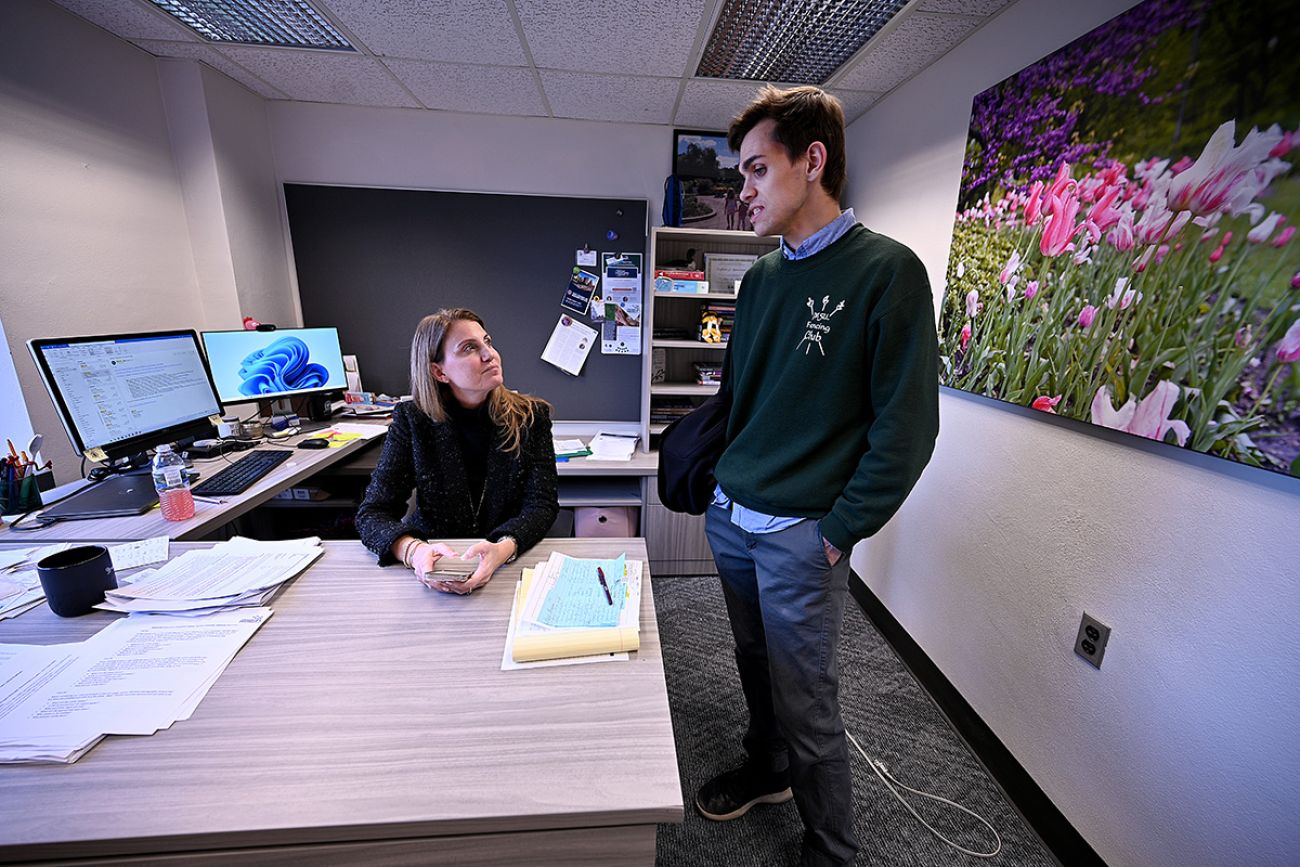

- One year ago, a gunman shattered the safety at Michigan State University, killing three and injuring five others.
- In crises, the part of the brain that processes emotion imprints memories that can flash forward for months, and even years.
- For some, those memories may flood back on the one-year mark of the shooting; There are ways to cope.
Devin Woodruff still walks into the MSU Union these days — but never without pause. Matias Jimenez has only gone back once, to retrieve belongings left behind as he ran for his life.
Anthony Folino looks for an escape route each time he steps into a new classroom in his new job as a teacher. And Jacob Catalina still wonders if he saw the shooter’s face that awful night.
Tuesday marks one year since a gunman opened fire in two buildings at the Michigan State University, killing three students, seriously wounding five others and shattering a sense of peace.
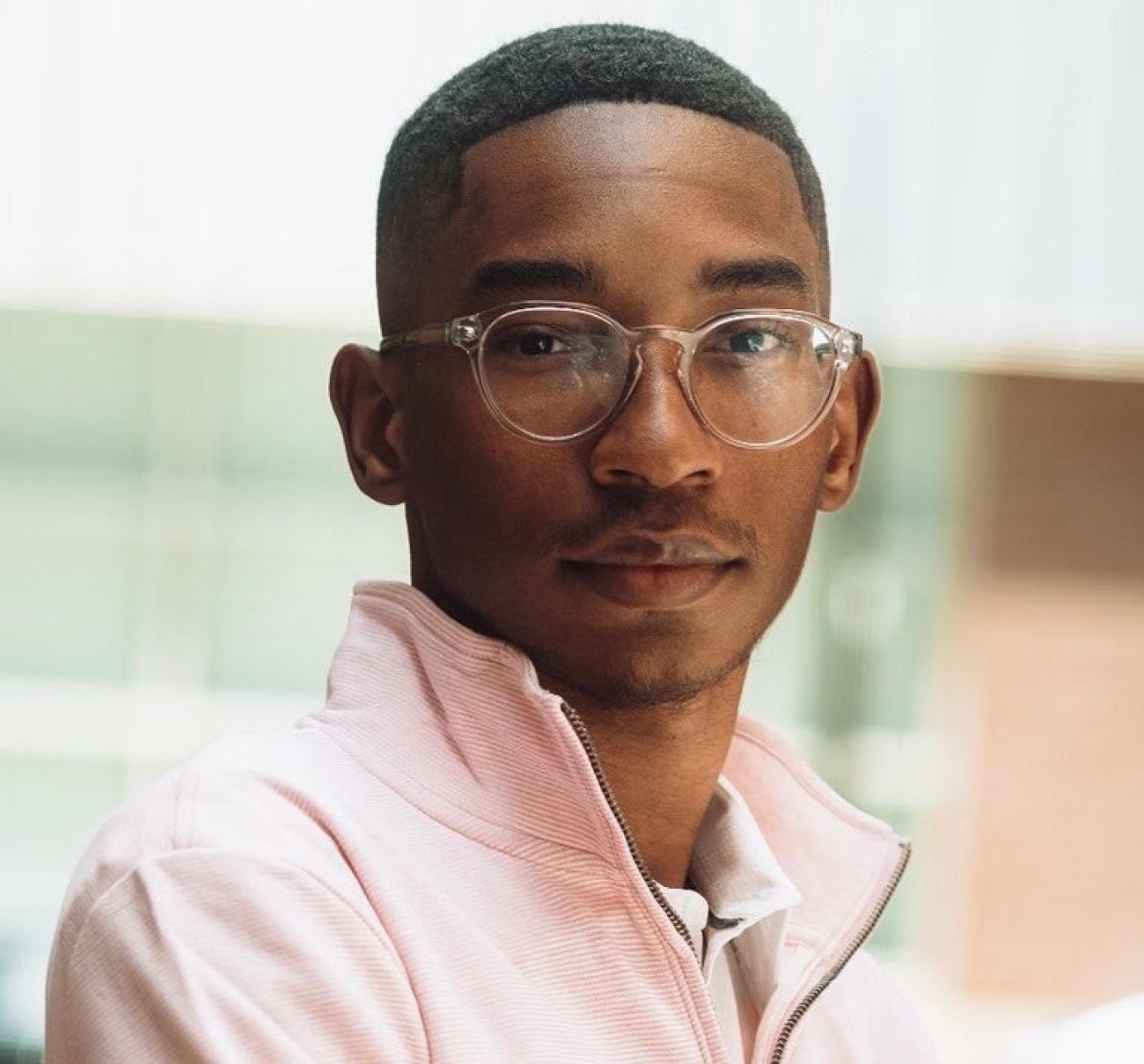
The attack embedded a collective trauma among direct witnesses, as well as those who scrambled to find safety, hid for hours in closets before the lockdown ended, as well as parents and relatives who tracked down students to ensure they were safe.
Related:
- Michigan State security upgrades a work in progress, one year after shooting
- MSU professor saw students die. A year later, he fights for ‘a good life’
- What Michigan State asked, and didn’t ask, in its review of campus shooting
A growing body of research has connected mass shootings to heightened anxiety among students, even those who haven’t been directly impacted, as well as major depression, anxiety disorders and substance use disorders, according to the American Psychological Association.
Even for those who believe the feeling is, at least for them, in the rearview mirror, the one-year mark may disrupt sleep or appetite, said Dr. Alyse Folino Ley, associate chair of education and research at MSU’s psychiatry department.
“It’s an unwanted, intrusive, abnormal memory that's laid down at the height of a tragedy,” Folino Ley said. “That has to do with the way our brains work, feedback systems in the brain, and being in that fight-or-flight response.”
Woodruff, who is now a senior studying public policy, was meeting in the basement of the MSU Union when the shooting began. He said the campus was “forever changed and altered last year.”
“There is survivor’s guilt – I’m here, I made it, but those three students — they didn’t,” said Woodruff, 21, who studies public policy.
The shooter, Anthony McRae, 43, of Lansing, walked into Berkey Hall shortly after 8 p.m. Feb. 13, 2023, and began firing. He killed Arielle Diamond Anderson, 19, and Alexandria Verner, 20, and wounded five classmates.
McRae then went to the MSU Union cafeteria and killed Brian Fraser, 20, before walking more than 4 miles toward his home in Lansing. When he was confronted by police, the gunman killed himself.
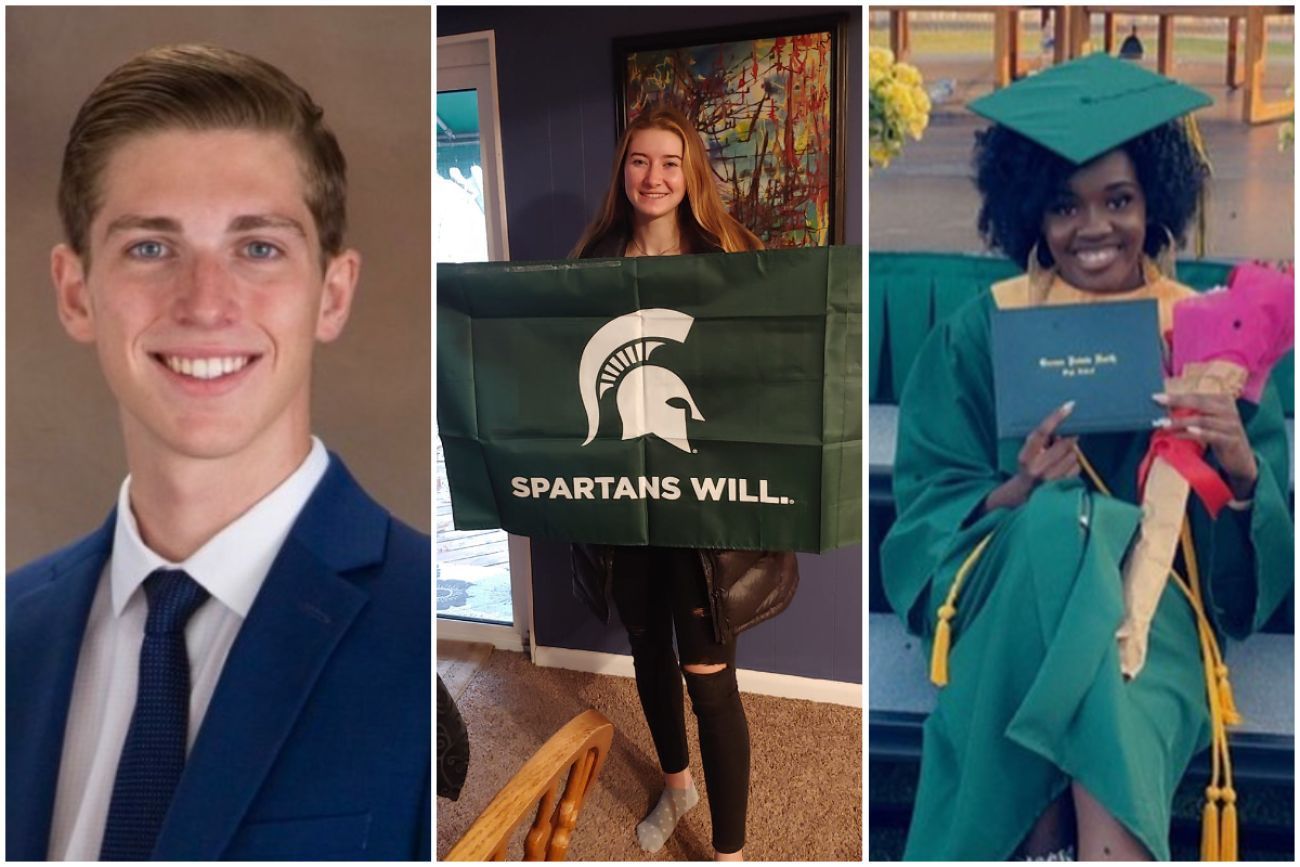
‘Day of remembrance’
MSU is memorializing the tragedy with events throughout the week, including a luminary lighting Monday at the Breslin Center, a remembrance ceremony at the Sparty statue and a “Self Care Day” on Friday.
Classes are canceled Tuesday.
Folino Ley, the psychiatrist, said it takes a focused effort to try to reframe the “anniversary” to one of a “day of remembrance” or “tribute.”
“Instead of giving more publicity to the attack, we give recognition to those who have survived, those who have endured, those who have come together to help one another,” said Folino Ley, who is associate chair of education and research at MSU’s psychiatry department.
She is also an expert who was called to help review the Route 91 Harvest Festival shooting in Las Vegas in 2017 and the Marjory Stoneman High School shooting in Parkland, Florida, in 2018.
Besides being an expert, Folino Ley was among the thousands of parents and relatives who frantically tried to reach students the day of the MSU shooting to ensure they were safe. Her son and nephews were students.
She and others who spoke to Bridge reported common themes in their recovery over the past year, including occasional feelings of hypervigilance.
“To this day, I always think about what's-going-to-happen scenarios,” said Anthony Folino, Folino Ley’s nephew, who was on campus during the shooting.
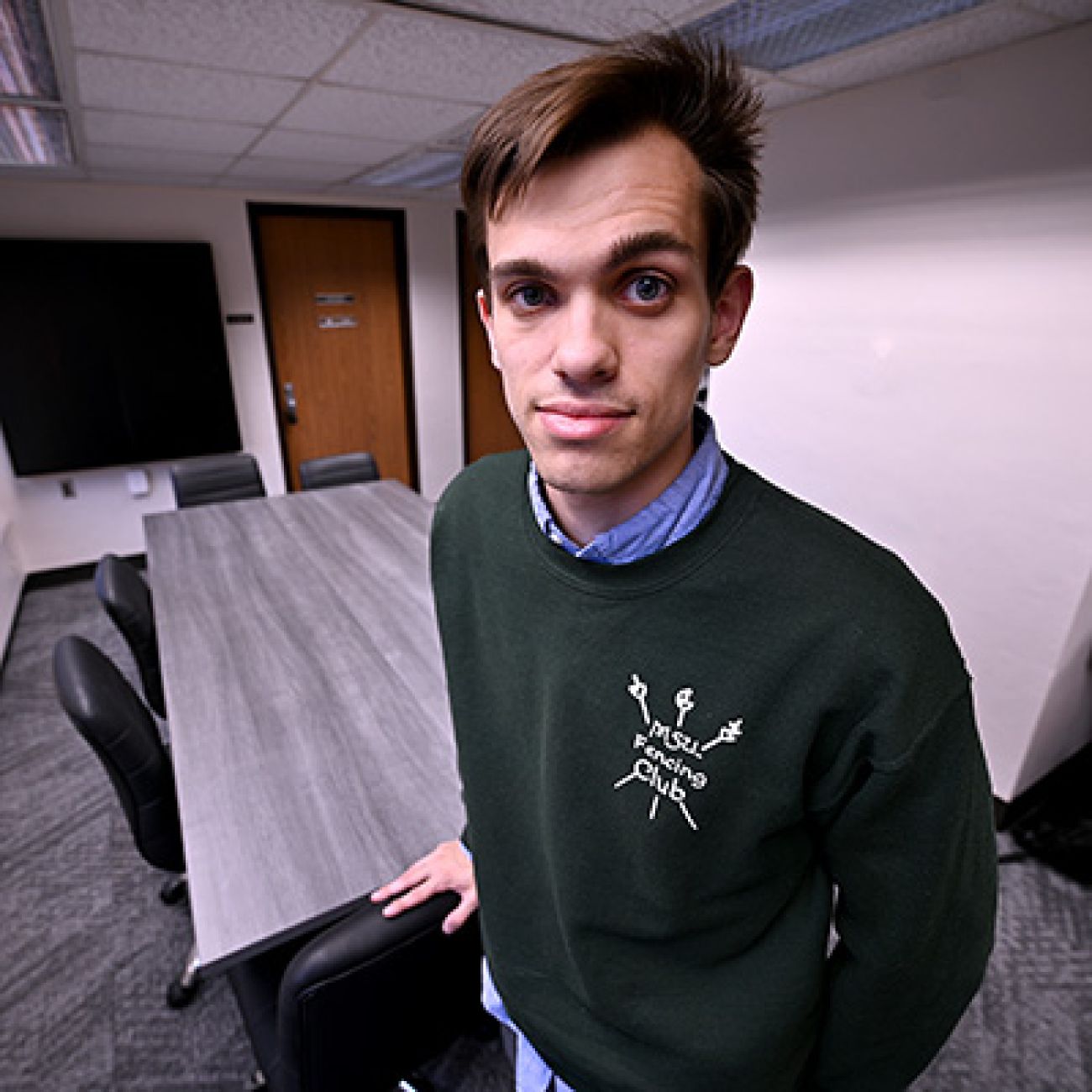
At just 23 years-old, it was his third such harrowing experience. He was also in the Chicago suburb of Highland Park when a rooftop gunman shot into a July 4th crowd the year before, and was student-teaching at Okemos High School a week before the MSU shooting, when a fake threat prompted a campus-wide lockdown.
This month, he took a job as an art teacher in nearby Eaton Rapids.
In this new classroom, he said, “the first thing I did — I looked for emergency exits. I need to know. How do I get out? What is the plan? What are the supplies I have? How do I lock the doors? What do I need?”
‘A stampede out the door’
People respond differently under attack, just as they will experience its aftermath differently, Folino Ley said.
“Even two people sitting right next to each other, seemingly experiencing the exact same thing, could have totally different reactions,” Folino Ley said. In the moment, “one might scream, one might be unable to scream.”
At the height of tragedy — those moments of fight-or-flight — the brain’s limbic system snaps into action, triggering physical responses to sharply emotional experiences such as fear.
In doing so, the system lays down abnormal memories that can later reignite with maddening unpredictability. That memory can be the mundane — the taste of a sandwich being eaten just as shots shatter the peace, or the unusual — the flutter of police tape in the aftermath.
A single sound, a smell — and “you're going back in the tragedy, you’re right back in the trauma. It's intrusive and unwanted,” Folino Ley said.
Students who witnessed the tragedy in the MSU Union said it started with the sound of a tray being dropped. It took a few moments and two more bangs to realize they were hearing gunshots.
At that point, “it was a stampede out the door,” said Jacob Catalina, a senior journalism major who had been at the union grabbing dinner with friends.
He tripped on the stairs. Others fell down them as students sprinted away in all directions. Some became separated from their group in the mayhem.
In the aftermath, witnesses reported being in shock and shaking, while simultaneously struggling to process what had happened.
They remember the sound of their phones buzzing with calls and texts from frantic friends and family. The fear that the gunman could still find them. The eerie silence of waiting in darkened rooms with desks barricading the doors.
‘I didn’t want to accept it’
Catalina’s first move after fleeing the union was to call his twin brother, a fellow MSU student, to make sure he was safe. Then he called his mom.
“That’s when the realization happened,” he said. “It clicked in my brain that holy crap, I was there.”
In the months since, Catalina has found it helps to talk about that night. He and his friends do so regularly. And they’ve made a pact to be together on the anniversary of the shooting.
“People suffer more than the one week that the national news covers it,” he said.
For some, the acute stress disorder in the month after a traumatic event develops into post-traumatic stress disorder, a condition in which those unwanted memories become disabling long-term.
During the shooting, Matias Jimenez, a 22-year-old kinesiology major, fled to a nearby residence hall. He huddled in a room with two strangers while his friends took refuge in restaurants on Grand River Avenue, or kept running until they reached more distant dorms or apartments.
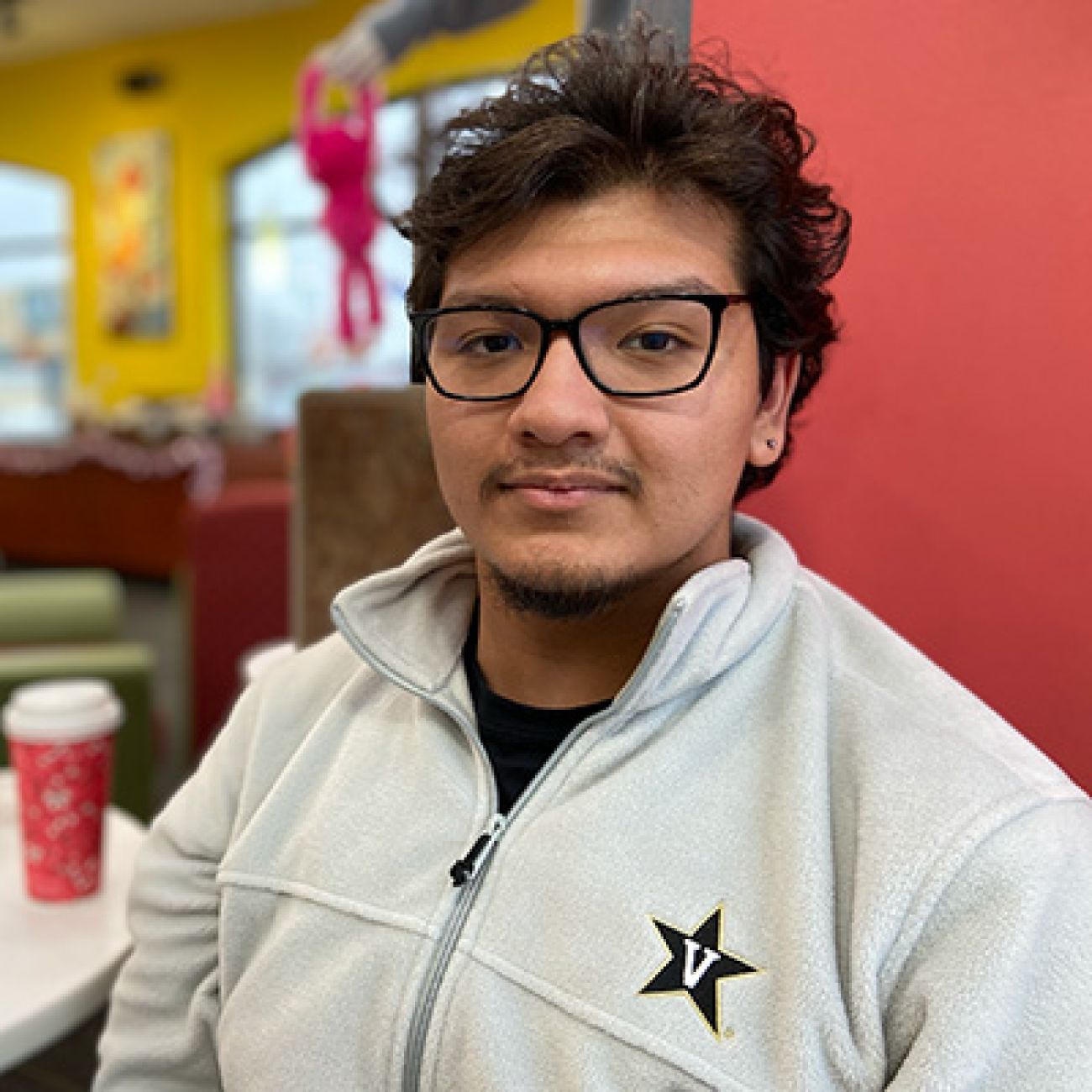
In the days that followed, Jimenez tried to carry on as if nothing had happened.
“I didn’t want to accept it yet,” he said. But eventually, “it hit me.”
His triathlon club had a meeting to talk about the tragedy and Jimenez grew so emotional he left the room. At school, he struggled to focus. He stopped exercising.
For a time, he took antidepressants to get through the day.
“I was just, kind of escaping the world,” he told Bridge.
Time has softened those feelings, he said, as has returning to his routines.
But he and other witnesses said the lingering trauma of the experience hasn’t fully healed.
Catalina thinks daily about the three students who died — Anderson, Verner and Fraser. On a recent walk to class, the realization struck him suddenly: “There are three people who don’t get to do this anymore.”
The anxiety he once felt about trivial things — a midterm exam, for example — is gone. Instead, he finds himself relishing life’s small joys, like karaoke nights with friends, playing with the marching band in Spartan Stadium, being with his family.
“You appreciate the simple stuff,” he said, “because you realize how much of it was almost taken away.”
For help
Here are steps to help cope for those suffering from the MSU shooting or other issues:
- Stay connected. Spend time with people who give you a sense of security, calm or happiness.
- Check on each other. Helping others can also help you find meaning and stay focused on the positive. Make a call. Take a walk with a friend. Offer support.
- Put down the phone: Take a break from social media and the TV if coverage of the event is increasing your distress.
- Focus on health: Exercise, good diet and sleep can improve energy and focus. Reduce blue light from your computer or cell phone before bedtime.
- Schedule the positive. Engage in positive, healthy, or meaningful activities, even if they seem small or you don’t feel like it.
- Find ways to feel safe. Focus on everyday routines and find ways to help you to increase your sense of safety.
- Break down problems. Break problems into smaller chunks to solve them.
- Manage emotions. Find positive coping strategies. Listen to music, practice breathing routines, talk with others, journal or spend time in nature or with pets.
- Refocus thinking: Find good thoughts to replace persistent and intrusive memories. Through prayer, mindfulness or gratitude, find meaningful ways to honor those who suffered.
- Adjust expectations: Redefine a “good day.” Set realistic goals of what you can accomplish.
- Seek professional help: Call or text the confidential and 24-hour Suicide & Crisis Lifeline at 988. Find more online at www.988lifeline.org if severe or distressing symptoms (difficulty sleeping, unwanted weight changes, inability to perform everyday tasks) last two weeks or more.
- Student help: A list of resources available to MSU students and community members is here.
Sources: U.S. Department of Veterans Affairs; National Institute of Mental Health.
See what new members are saying about why they donated to Bridge Michigan:
- “In order for this information to be accurate and unbiased it must be underwritten by its readers, not by special interests.” - Larry S.
- “Not many other media sources report on the topics Bridge does.” - Susan B.
- “Your journalism is outstanding and rare these days.” - Mark S.
If you want to ensure the future of nonpartisan, nonprofit Michigan journalism, please become a member today. You, too, will be asked why you donated and maybe we'll feature your quote next time!
